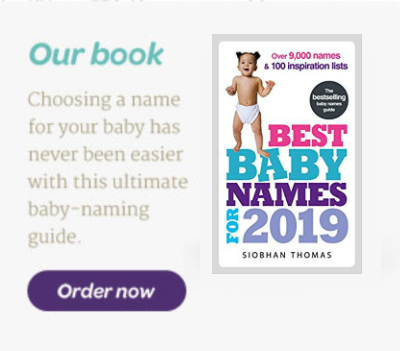This was originally posted on November 19, 2012
Despite looking like it was heading to be the next big baby naming trend, the popularity of giving a child a unisex name has taken a nose-dive recently. Out of the top thirty girls’ names of 2011, none of them could be considered unisex names, while only three of the top thirty boys’ names could realistically be considered unisex. So why the sudden disinterest in unisex names?
It could be due to the ever-increasing popularity of traditional baby names such as Olivia, Grace, and Ava. Unisex names are regarded as a modern invention, and so this trend for the traditional has steered us away from calling our children gender-neutral names. The penchant we seem to have for girls’ names ending with ‘a’ could also be adding to this trend to avoid unisex names. When it comes to baby names, generally only girls’ names will end in the feminine ‘a’ sound. This comes from the Italian language, where most of the ‘masculine’ words end with ‘o’ and most of the ‘feminine’ words end in ‘a’. In the top ten girl’s baby names of 2011, half of them ended in the letter ‘a’.
Benefits and More?
There are many benefits to giving your child a unisex name. One of the main advantages is that over email and written correspondence the receiver cannot tell whether the writer is a male or female. This avoids the risk of a person being stereotyped when they are applying for jobs. As much as this should not happen, the sad reality is that many employers might discriminate against a gender for a specific job. Unisex names are also thought to be more original, or something different to the norm. This might make your child stand out from the crowd even from an early age.
The Disadvantages?
Many parents believe unisex names can be ‘strong’ names for girls. However, while many unisex names have got a strong sound, there are also plenty of girl-only names which are just as ‘strong’ sounding. When it comes to unisex names for boys, there can be complications. At school, a girl isn’t likely to get teased for having a boy’s name, whereas, for some reason, a boy would be more likely to get teased for having a girly sounding name, especially if there is a well known female figure with that name, like Jordan. Having adults or teachers confuse your child’s name with the opposite gender could also be embarrassing for your child, especially if it was in front of their peers.
Some parents feel that giving their child a unisex name gives them more opportunities in life, while allowing them to grow into their own personality without feeling like they have to ‘live up to’ the expectations of their name. If you are considering a unisex name, it might be useful to see where it ranks in the league table for boys and girls. If a name is fifth on the boys’ league, like Charlie, but does not appear on the girls’ list, then you know far more boys have that name than girls do. This can help you make a decision on whether to use the name, whether you choose it for your daughter because it would be original, or whether you want it for your boy because he won’t stand out from the crowd too much with his unisex name.


